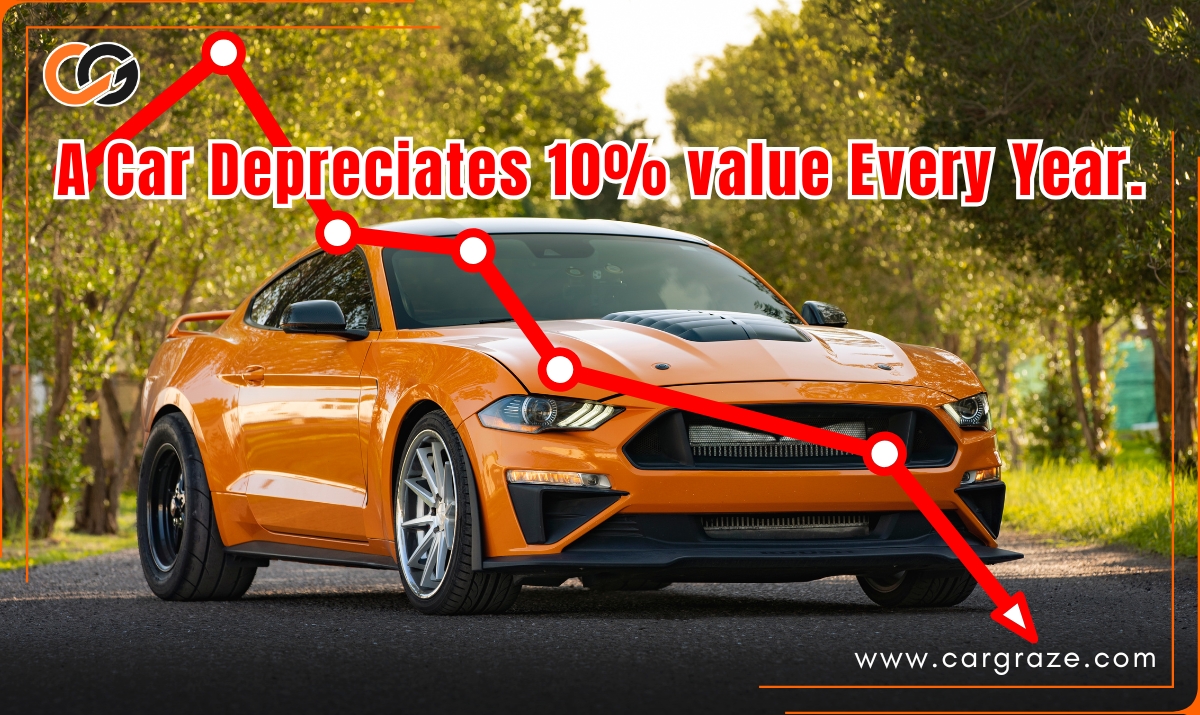
Understanding Car Depreciation in India: What You Need to Know and How to Calculate It
When it comes to buying a car, one of the most important aspects to understand is its depreciation value. In India, like elsewhere, cars begin losing their value as soon as they leave the showroom. But how exactly is this depreciation calculated, and why should you care? Let’s dive into the concept of car depreciation, how it’s calculated in India, some quick facts, and answer common questions to clear up any doubts.
What is Car Depreciation?
Car depreciation is the reduction in the car's value over time. It depends on multiple factors, but primarily on the car's age. Every car, regardless of make or model, depreciates over time. As a car owner, understanding this value is crucial, especially if you plan to resell or exchange your car in the future.
In India, depreciation is a big consideration for car insurance, loan decisions, and even tax deductions if you’re a business owner. It helps to know how fast your car will lose value over time so you can make financially sound decisions.
How Does Car Depreciation Work?
The moment you buy a car, it starts losing value. Depreciation rates can vary based on the brand, make, and model, but typically, a car loses around 20-30% of its value within the first year. After that, the depreciation rate decreases slightly, but the car still continues to lose around 10-15% of its value every year for the next few years.
The rate of depreciation generally follows a pattern:
- First Year: 20-30% depreciation.
- Second Year: Additional 10-15% depreciation.
- Third to Fifth Year: Around 10-12% per year
- Sixth Year and Beyond: The depreciation rate slows, but the car’s value continues to decrease, stabilizing around 60-70% of its original value.
How to Calculate Car Depreciation in India
The depreciation calculation can vary, but the Insurance Regulatory and Development Authority of India (IRDAI) has set general guidelines that most insurance providers follow:
- Up to 6 months - 5% depreciation.
- 6 months to 1 year - 15% depreciation.
- 1-2 years - 20% depreciation.
- 2-3 years - 30% depreciation.
- 3-4 years - 40% depreciation
- 4-5 years - 50% depreciation.
- Beyond 5 years - Negotiated value or market value.
These values are mostly used for insurance claims, where the car’s Insured Declared Value (IDV) is calculated based on its depreciation rate.
The formula for Calculating Depreciation
While the percentages listed above can give you a ballpark figure, you can also use a formula to calculate car depreciation:
- Depreciation Amount = Original Purchase Price - Current Market Value
For insurance purposes, the formula would use the IDV as the current market value.
For example, if you bought a car for ₹10,00,000 and it depreciates 20% in the first year, the value at the end of year one would be ₹8,00,000 (i.e., ₹10,00,000 - 20% of ₹10,00,000).
Key Factors That Affect Car Depreciation in India
- Car Brand and Model: Luxury cars tend to depreciate slower compared to entry-level or mid-segment cars. Some brands also retain value better than others.
- Usage and Mileage: The more kilometers on the odometer, the higher the depreciation. Cars with high mileage generally have more wear and tear.
- Condition and Maintenance: Regularly serviced and well-maintained cars can retain their value longer.
- Market Demand: Cars in high demand or with a good reputation for reliability may depreciate more slowly.
- Fuel Type: Diesel cars tend to have lower resale value than petrol cars due to increased maintenance costs over time.
- Age: The older the car, the higher the depreciation rate.
Quick Facts About Car Depreciation in India
- A new car depreciates by around 20-30% as soon as it’s driven out of the showroom.
- On average, most cars in India lose around 40-50% of their value by the fourth or fifth year.
- Cars with high resale value, like those from Maruti Suzuki or Toyota, often retain more of their value compared to luxury brands.
- Electric cars in India are expected to have slower depreciation rates due to growing demand and incentives.
Final Thoughts
Understanding car depreciation in India is essential, whether you’re buying new or used. Calculating depreciation can help you gauge how much value you’ll lose over time, helping you make smarter financial decisions, especially when reselling or exchanging your car. Keep these insights in mind when purchasing or maintaining your vehicle - it's not just about the car itself but also its value in the long run.
Advice: Looking to sell your used car? You can do it quickly and get a great price! Check it out at: www.cargraze.com/sell-used-car
Helpful Tools:
- Car/ Bike Loan EMI Calculator and monthly EMI breakdown.
- Vehicle Mileage Calculator (Car and Bikes Mileage Calculator).
Frequently Asked Questions (FAQs)
Q: Why does a car’s value depreciate so quickly?
A car depreciates due to wear and tear, market perception, and the arrival of newer models with better technology. In India, new car prices also include a range of taxes, which aren’t recovered upon resale, hence the quick initial drop.
Q: How does depreciation affect my car insurance premium?
Car insurance premiums, especially for comprehensive coverage, are based on the car’s IDV, which decreases as the car depreciates. Therefore, premiums reduce over time but so does the payout in case of a claim.
Q: Can I slow down the depreciation rate?
Yes, by maintaining your car well, driving safely, and keeping the mileage low. Choosing a brand known for high resale value also helps.
Q: Is it wise to buy a second-hand car considering depreciation?
Yes, since most of the depreciation happens in the first few years, buying a second-hand car (around 2-3 years old) can offer good value for money. You get a car that has already gone through major depreciation, and you’ll experience a slower rate of depreciation from then on.
Q: How does car depreciation impact loan repayment?
Depreciation impacts resale value but doesn’t directly affect loan repayment. However, if you plan to sell the car before the loan term ends, a higher depreciation could mean you owe more than the car’s resale value.



Comments